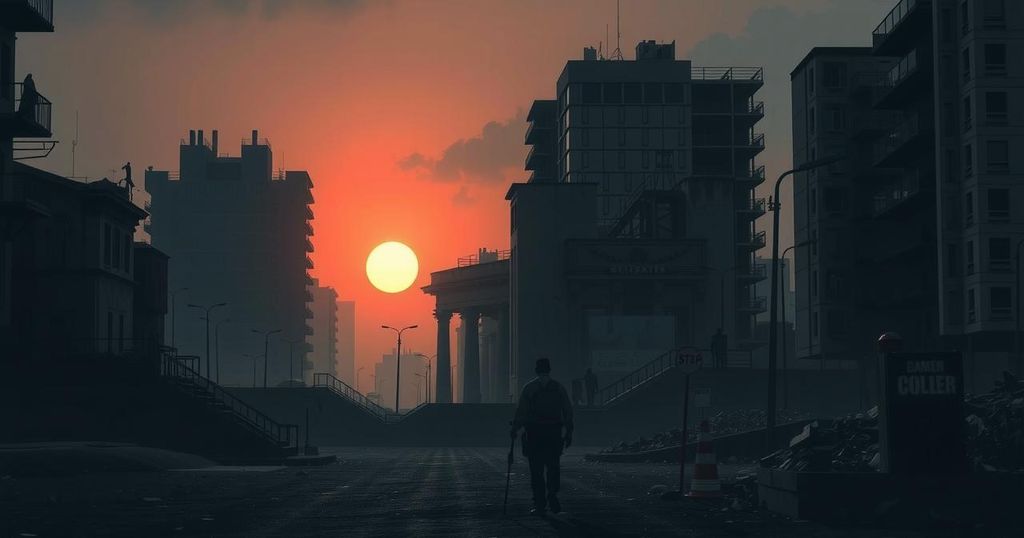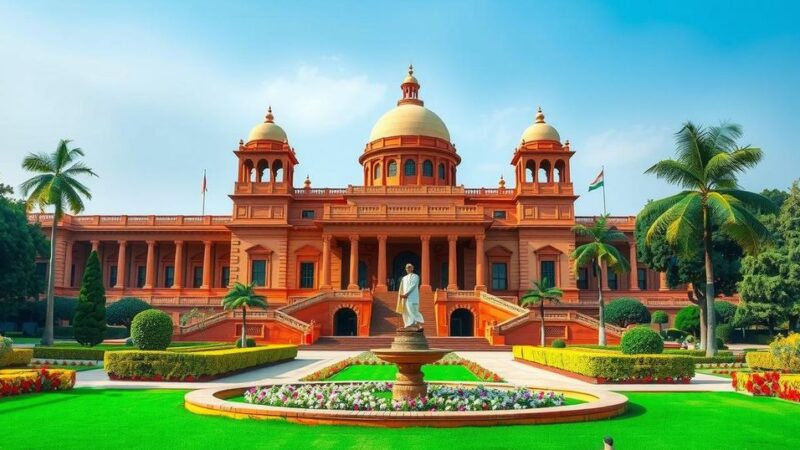The Sudanese army is advancing to regain Khartoum, having recaptured key areas from the RSF. However, the RSF still controls much of the city. The conflict has resulted in severe humanitarian crises, displacing millions and causing widespread famine. Both military factions face allegations of atrocities against civilians, while fears of retaliation remain high among the populace.
The Sudanese army is making significant advances in their campaign to reclaim Khartoum, having recaptured substantial portions of the war-ridden capital from the RSF paramilitaries. According to residents, clashes have intensified, with reports of heavy ammunition fire affecting local neighborhoods. Key strategic sites, including the mint responsible for currency production, have fallen back into army control. Despite the army’s territorial gains in the surrounding areas, the RSF still maintains control over much of central Khartoum.
Recent victories in the crucial state of Gezira have emboldened the army, prompting optimism regarding the potential reclamation of the capital. Army leader Gen. Abdel Fattah al-Burhan declared that soon no rebels would remain in Khartoum. As conflict continues, humanitarian crises have escalated, with reports indicating starvation affecting over 100,000 individuals in Khartoum alone according to UN-backed researchers.
The ongoing civil war, which erupted nearly two years ago, has led to the displacement of 12 million people and an alarming number of civilian casualties. International agencies label Sudan’s situation as the worst humanitarian crisis, with both military factions being accused of heinous crimes against civilians, including genocide.
The army’s recent successes are attributed to an increase in fighters and military resources. Reports of the army’s welcome in newly reclaimed areas reflect a growing sentiment against the RSF, which has been accused of grave abuses, including killing, looting, and sexual violence. However, the RSF has dismissed claims of army advances as unfounded rumors, maintaining that they have faced similar allegations during retreats.
Concerns linger among residents regarding possible retribution against anyone perceived to have collaborated with the RSF. Reports of brutal retaliations raise fears for civilians caught between the two warring factions. For those like Amir and Mustafa, the future remains uncertain, and anxieties about safety are prevalent as the army draws closer to Khartoum’s core.
In summary, the Sudanese army’s recent territorial gains in Khartoum mark a significant escalation in the ongoing civil conflict, characterized by heavy clashes and humanitarian distress. With the army seeking to reclaim complete control of the capital and various atrocities reported on both sides, the situation poses severe risks for civilians. As the conflict progresses, widespread fears of retribution linger amidst the broader humanitarian crisis affecting millions.
Original Source: www.bbc.com






